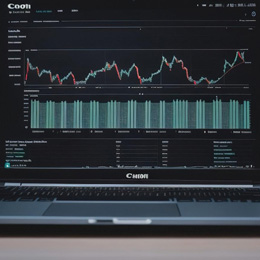Introduction:
In the vast landscape of financial markets, few arenas offer the dynamism and potential for profit as the foreign exchange (forex) market. Forex trading, the buying and selling of currencies, serves as the cornerstone of international commerce, investment, and speculation. In this blog, we embark on a journey to unravel the intricacies of forex trading, exploring its fundamentals, strategies, risks, and the allure it holds for traders worldwide.
Understanding Forex Trading:
At its essence, forex trading involves the exchange of one currency for another, with the aim of profiting from fluctuations in exchange rates. The forex market operates 24 hours a day, five days a week, spanning across major financial centers worldwide. Unlike traditional stock markets, forex trading doesn’t have a central exchange; instead, it operates through a decentralized network of banks, financial institutions, corporations, and individual traders.
Fundamentals of Forex Trading:
The foundation of successful forex trading lies in understanding key concepts such as currency pairs, exchange rates, and market dynamics. Currency pairs are quoted in relation to each other, with the first currency being the base currency and the second currency being the quote currency. Exchange rates reflect the relative value of currencies and are influenced by factors such as interest rates, economic indicators, geopolitical events, and market sentiment.
Strategies in Forex Trading:
Forex trading offers a diverse range of strategies tailored to capitalize on market trends and price movements. From trend following and range trading to breakout trading and scalping, each strategy relies on technical analysis, fundamental analysis, or a combination of both to identify trading opportunities. Traders utilize various tools such as charts, indicators, and economic calendars to make informed decisions and execute trades accordingly.
Risk Management in Forex Trading:
While forex trading presents lucrative opportunities for profit, it also entails inherent risks. Market volatility, leverage, and geopolitical uncertainties can lead to significant losses if not managed effectively. Therefore, risk management is paramount for forex traders to preserve capital and navigate through turbulent market conditions. Techniques such as position sizing, stop-loss orders, and diversification help mitigate risks and safeguard against adverse market movements.
The Role of Technology:
In the digital age, technology has revolutionized the forex trading landscape, empowering traders with advanced tools and platforms to execute trades efficiently. Online brokerages offer access to a wide range of currency pairs, competitive spreads, and leverage options, enabling traders to participate in the forex market from anywhere in the world. Additionally, trading software and algorithms automate the execution of trades and streamline the analysis process, enhancing productivity and decision-making capabilities.
Regulatory Environment:
Forex trading operates within a regulatory framework aimed at ensuring market integrity and investor protection. Regulatory bodies such as the Commodity Futures Trading Commission (CFTC) in the United States and the Financial Conduct Authority (FCA) in the United Kingdom oversee forex brokers and enforce compliance with rules and regulations. Traders should choose reputable brokers regulated by recognized authorities to ensure transparency, security, and fair-trading practices.
The Allure of Forex Trading:
What sets forex trading apart is its accessibility, liquidity, and potential for profit. With a low barrier to entry, traders of all backgrounds can participate in the forex market and capitalize on global economic trends. Moreover, the high liquidity of the forex market ensures that traders can enter and exit positions quickly without significant slippage. Combined with the ability to trade on margin, forex trading offers the allure of potentially high returns, attracting individuals seeking financial independence and entrepreneurial opportunities.
Conclusion:
Forex trading represents a gateway to the world of international finance, offering a platform for traders to capitalize on global economic trends and geopolitical events. While forex trading presents abundant opportunities for profit, it requires discipline, patience, and a deep understanding of market dynamics. By mastering the fundamentals, implementing sound strategies, and managing risks effectively, traders can navigate the complexities of the forex market and embark on a journey towards trading success.

Leave A Comment